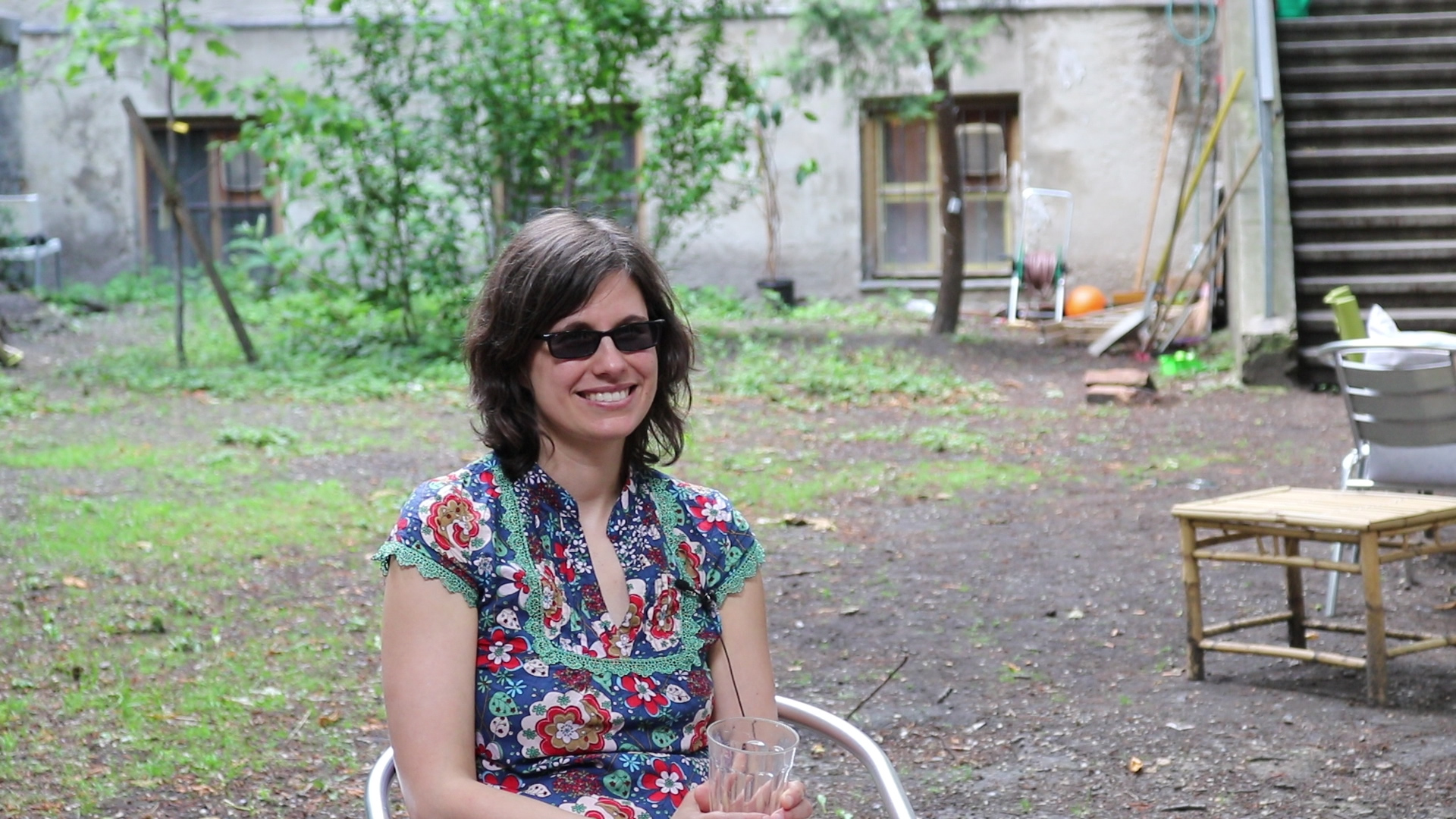In dieser Lektion
Sprechen
Interview
- Beschreiben Sie Ihre Familie! Ihr*e Partner*in zeichnet dann den Familienstammbaum.
- Was machen Sie gern mit Ihrer Familie? Was machen Sie oft mit der Familie?
- Wann kommt die Familie zusammen? Wann kommt Ihre Großfamilie [=Großeltern, Tanten und Onkel, usw] zusammen? Was machen Sie mit der Großfamilie zusammen?
Lesen
Vor dem Lesen
Now you’ll read Mathilde’s answer to the question: Wann kommt die Familie zusammen? Was machen Sie mit der Familie zusammen? Before you read, think for just a minute about what you expect to hear: are there words that you think might come up in Mathilde’s answer? Make a list of possible terms that you might read. Compare your list with a classmate.
Mathilde talks about her “Herkunftsfamilie.” What is a Herkunftsfamilie? Think about the review of composite nouns from the last lesson and break this word down into two parts. What are the two words? What do those two parts mean? And what does the overall term Herkunftsfamilie mean?
Lesen
Mathilde hat zwei Kinder. Sie hat auch eine Partnerin und die Partnerin hat ein Kind.

Also, meine Herkunftsfamilie trifft sich üblicherweise, wenn es Feierlichkeiten gibt, zum Beispiel zu Weihnachten, zu Ostern und zu Geburtstagen. Auch einmal im Jahr trifft sich die größere Verwandtschaft. Da treffen sich alle Geschwister, meine Eltern, mit ihren Kindern und Enkelkindern. Es ist ein größeres Familientreffen.
Im Alltag bin ich viel mit meinen Kindern zusammen und auch viel mit meiner Partnerin und deren Kind und mit meinen Kindern. Auch wenn wir nicht zusammen wohnen, wir unternehmen sehr viele Ausflüge. Wir fahren oft raus aus Wien und sind im Freien, gehen klettern, gehen in dem Wald wandern. Das sind die Aktivitäten, die wir gerne am Wochenende gemeinsam machen.
Arbeit mit dem Lesen
Sprechen
Besprechen Sie den Text mit einer anderen Person:
- Welche Aktivitäten, die Mathilde macht, machen Sie auch mit Ihrer Familie? Welche nicht?
- Haben Sie auch Familientreffen? Wenn ja: Wie oft? Warum? Was macht die Familie zusammen bei solchen Treffen?
- Was haben Sie als Kind mit Ihren Eltern gemacht?
Hören
Jetzt hören Sie drei weitere Antworten auf die Fragen: “Wann kommt die Familie zusammen? Was machen Sie mit der Familie zusammen?” Was sagen Anna, Beate und Daniele darüber?
Arbeit mit dem Hören
Wortschatz
Several composite nouns have come up in the reading and listening texts. Look at the following list of words and determine their meaning by looking at the various parts that make up the word.
die Herkunftsfamilie
das Familientreffen
das Wochenende
der Familientag
der Familiensonntag
der Geburtstag
die Geburtstagsfeier
das Zusammensein
Kultur

When people accustomed to living in the United States spend time living or working in Germany or Austria, they are sometimes caught unprepared for one significant cultural difference: Sunday. Most shops, including grocery stores, are closed on Sundays, although there are some exceptions. Some German states allow shops to be open on specific Sundays, and shops in train stations and and airports often have expanded opening times that include Sundays. Restaurants, cafes, and food trucks may all be open on Sunday. Convenience stores, sometimes called Kiosks, Spätkauf, or Späti, are also often open on Sundays.
For most people living in Germany and Austria, Sunday tends to be a quiet day. For people who work Monday through Friday, Sunday is a good day for spending time with family and relaxing—and indeed, many families get together on Sundays to share a meal and each other’s company. Activities that might disturb someone else’s quiet Sunday are frowned upon, and in some places are punishable by law.
Go to google.de and search: “Was kann man am Sonntag machen?” What types of tips do you see? What do those tips tell you about the types of activities that are typically done on Sunday? Now try searching “Was kann man am Sonntag nicht machen?” or “Sonntagsruhe.” What do you find? What are the rules and expectations about Sonntagsruhe?
Strukturen
Vowel-changing Verbs
In the last lesson, we reviewed regular verbs, haben and sein, and modal verbs. As you already know, some verbs change their vowels in the second-person singular (du) and third-person singular (sie, es, er, xier) forms. These verbs are typically called irregular verbs (or sometimes strong verbs). When we start working on the past tense, these verbs will all have a common characteristic, so being aware of them now will help you learn the perfect tense later. These verbs tend to follow these patterns:
a > ä (fahren, tragen, laufen, schlafen, einladen)
ich fahre > du fährst, sie fährt
e > ie (lesen, sehen)
ich lese > du liest, er liest
e > i (geben, sprechen, nehmen, treffen, helfen)
ich gebe > du gibst, xier gibt
This list isn’t exhaustive, but it does include many of the highest frequency verbs. A more complete table is included in the Erweiterung to this lesson. But first, let’s practice!
Possessive Adjectives
When talking about friends and family, we often use words like “my,” “her” or “their,” such as “my brother” or “their parents.” Those words are called possessive adjectives. Let’s review the possessive forms for each person (ich, du, sie, usw.):
| Pronoun (singular) | Possessive adjective | Pronoun (plural) | Possessive adjective |
|---|---|---|---|
| ich | mein | wir | unser |
| du | dein | ihr | euer |
| Sie | Ihr | Sie | Ihr |
| sie | ihr | sie | ihr |
| es | sein | ||
| er | sein | ||
| xier | xies | ||
| they | their | ||
Possessive adjectives use the same endings that indefinite articles (ein/kein) do and for this reason, they are also occasionally called ein-words. Here is a chart with these endings that should look familiar to you:
| Plural | die | das | der | |
|---|---|---|---|---|
| Nominativ | meine keine | eine meine keine | ein mein kein | ein mein kein |
| Akkusativ | meine keine | eine meine keine | ein mein kein | einen meinen keinen |
| Dativ | meinen keinen | einer meiner keiner | einem meinem keinem | einem meinem keinem |
| Genitiv | meiner keiner | einer meiner keiner | eines meines keines | eines meines keines |
Now practice with the following activity. Which possessive adjective do you need? And which case?